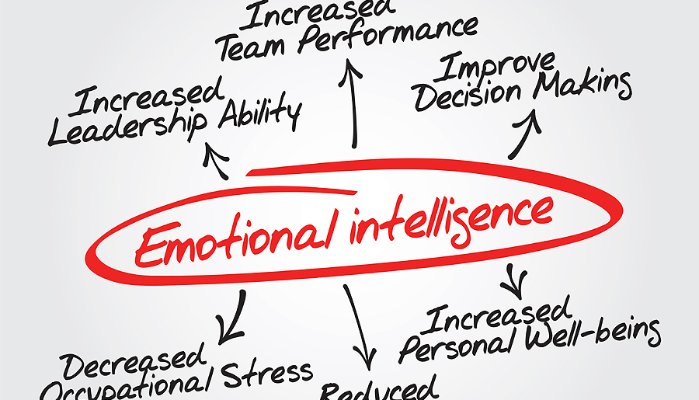THE (HE)ART OF LEADERSHIP: AN EMOTIONAL INTELLIGENCE FOR LEADERS TRAINING IN THE PHILIPPINES
A One-day Corporate EnterTRAINment on Emotional Intelligence for Leaders Training in the Philippines
ENTERTRAINMENT OVERVIEW:
This 1-day Emotional Intelligence for Leaders training in the Philippines is designed to provide leaders with the knowledge and skills necessary to understand, apply, and enhance their emotional intelligence in the context of leadership.
Participants will explore the fundamentals of emotional intelligence, its relevance to leadership, various models of emotional intelligence, the role of non-verbal communication in leadership, alignment with organizational values, and practical tips for personal improvement.
The training combines theoretical insights with interactive activities to promote practical application.
ENTERTRAINMENT GOAL:
The overall goal of this training is to equip leaders with a strong understanding of emotional intelligence and its practical applications in leadership.
Participants will learn how to leverage emotional intelligence to enhance their leadership skills, build better relationships with clients and employees, and align their leadership approaches with organizational values and goals.
ENTERTRAINMENT OBJECTIVES:
By the end of this 1-day Emotional Intelligence for Leaders Training in the Philippines, the trainees/participants should:
- Establish a Fundamental Understanding of Emotional Intelligence: Participants will gain a clear understanding of what emotional intelligence (EI or EQ) is, its significance in leadership, and why it is essential for effective leadership in today’s workplace.
- Explore Models of Emotional Intelligence: Participants will delve into various models of emotional intelligence, including Daniel Goleman’s Mixed Model, Konstantin Vasily Petrides’ Trait Model, and Peter Salovey and John Mayer’s Ability Model. This exploration will enable them to apply different aspects of emotional intelligence to their leadership roles.
- Recognize the Role of Non-Verbal Communication: Participants will learn the importance of non-verbal communication in identifying and managing emotions, including facial expressions, body language, and paralanguage. They will acquire practical skills to enhance their ability to connect with others on an emotional level.
- Align Emotional Intelligence with Organizational Vision and Values: Participants will explore the alignment of emotional intelligence with the vision, mission, and values of their organization. They will understand how emotional intelligence can be integrated into leadership practices to promote a values-driven approach and contribute to organizational success.
ENTERTRAINMENT OUTLINE:
MODULE I: Emotional Intelligence or Emotional Quotient 101 (30 minutes)
| RATIONALE: This module will ensure that all participants are on the same page or aligned with what EI or EQ means and everything else they need to know about this topic.
|
Topics:
- What is Emotional Intelligence?
- Why is Emotional Intelligence Needed in Leadership?
Activities:
- How Much Do You Know About EI or EQ? – This is an activity that involves multi-colored papers or Post-Its with colored marking pens for the participants to use
- Sharing
MODULE II: Models of Emotional Intelligence and their Practical Applications in Leadership (1 hour and 15 minutes)
| RATIONALE: This module will share with them a bit of history about how EI or EQ came about and what studies and models have been developed over the years to expound on this and utilize this for workplace application. |
Topics:
- Daniel Goleman’s Mixed Model
- Konstantin Vasily (K.V.) Petrides’ Trait Model
- Peter Salovey and John Mayer’s Ability Model
- Howard Gardner’s Theory of Multiple Intelligences (May be optional depending on the time)
Supporting Activities:
- Participant-Involving Discussion
- Pen-and-Paper Work
MODULE III: The Role of Non-Verbals in Determining and Managing One’s and Others’ Emotions or Feelings (1 hour and 15 minutes)
| RATIONALE: This module shares with them the meanings and practical applications of non-verbal communication involving facial or micro expressions, body language and hand gestures, and even paralanguage in identifying with other people’s emotions and leading them better in the workplace. |
Topics:
- Facial Expressions
- Body Language
- Paralanguage
Supporting Activities:
- Facilitator Demonstration and Participant Replication
- Role Play (if time permits)
MODULE IV: Tying Up EI or EQ with Converga’s Vision, Mission, and Values Alignment with Leadership (40 minutes)
| RATIONALE: Knowing what Emotional Intelligence is and how it can be leveraged in bettering leadership and management skills and client and employee relationship is not enough. It always boils down to ‘Business As Usual’ and whether or not leadership approaches and activities are aligned with the direction, objectives, and strategies of the company. This module will find the relationship between the two and marry them. |
Supporting Activities:
- Group Dynamics
- Interactive Discussion using Flipchart Papers and Whiteboard
MODULE V: How to Improve Emotional Intelligence
| RATIONALE: Before this program is wrapped up, the participants will be given tips on how they can personally upgrade or enhance their own EQ. |
Topics:
- Tips on Improving Your EQ
Supporting Activities:
- Interactive Discussion
Check out our other Leadership and Management-related program by clicking the link below:


